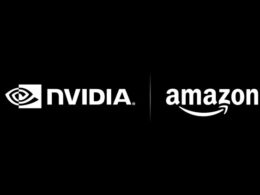The open-source Llama 2 large language model (LLM) developed by Meta is gaining traction in the enterprise sector, thanks to Dell Technologies. Dell recently announced its support for Llama 2 models in its Dell Validated Design for Generative AI hardware and generative AI solutions for on-premises deployments. Unlike cloud providers, Dell is bringing the open-source LLM to on-premises environments – a significant step in advancing the adoption of Llama 2.
Additionally, Dell is utilizing Llama 2 for its own use cases, providing Meta with valuable insights into how enterprises can leverage the capabilities of Llama. Matt Baker, senior vice-president of AI strategy at Dell, stated, “With the level of sophistication that the Llama 2 family has, you can now run that on-premises right next to your data and really build some fantastic applications.”
Empowering Enterprise Customers
Dell is committed to helping its enterprise customers unleash the potential of generative AI. Alongside its existing support for the Nvidia NeMo framework, Dell’s inclusion of Llama 2 offers organizations an additional option. Dell assists its customers by guiding them on the necessary hardware and providing expertise on building applications that benefit from the open-source LLM.
Baker also revealed that Dell is utilizing Llama 2 internally for both experimental and actual production deployments. One of their primary use cases involves supporting Retrieval Augmented Generation (RAG) as part of Dell’s knowledge base. Llama 2 provides a chatbot-style interface, simplifying access to information for Dell employees.
Collaborating with Meta
Dell’s collaboration with Meta enables them to tap into the massive success of Llama 2, which has seen approximately 30 million downloads of the open-source technology in the last 30 days. Joe Spisak, head of generative AI open source at Meta, highlights the pivotal role of Llama 2 as the centerpiece for Meta’s entire generative AI stack, including the open-source PyTorch machine learning framework. According to Spisak, the adoption of Llama 2 extends across various players in the AI ecosystem, ranging from cloud providers, such as Google Cloud, Amazon Web Services, and Microsoft Azure, to hardware vendors like Qualcomm.
While Llama 2 is already adopted in the cloud, Spisak emphasizes the significance of partnerships that facilitate on-premises deployments. The collaboration between Meta and Dell provides organizations with options for secure data handling and data privacy. Spisak explains, “That’s where these open models really shine, and Llama 2 does hit that sweet spot as a really capable model and it can really run anywhere you want it to run.”
Working closely with Dell enables the Llama development community to gain valuable insights and build for enterprise requirements. The deployment of Llama technology in various use cases will contribute to the growth and improvement of the Llama ecosystem.
“That’s really the value of working with folks like Dell, it really helps us as a platform and that will hopefully help us build a better Llama 3 and Llama 4 and overall just a safer and more open ecosystem,” said Spisak.
In conclusion, Dell’s partnership with Meta and its support for Llama 2 showcases the growing adoption and potential of this language model in enterprise settings. The collaboration enables organizations to harness the power of generative AI while ensuring data privacy and on-premises deployments.










